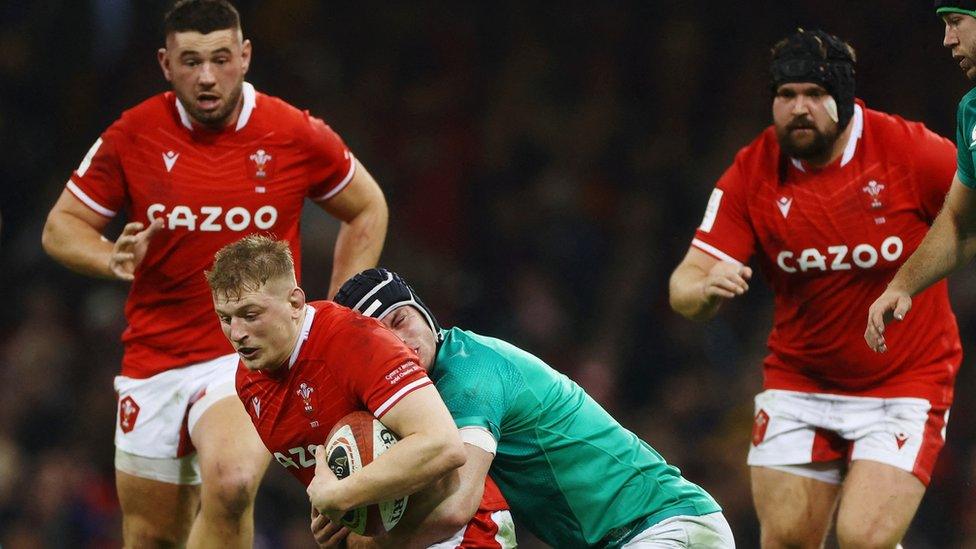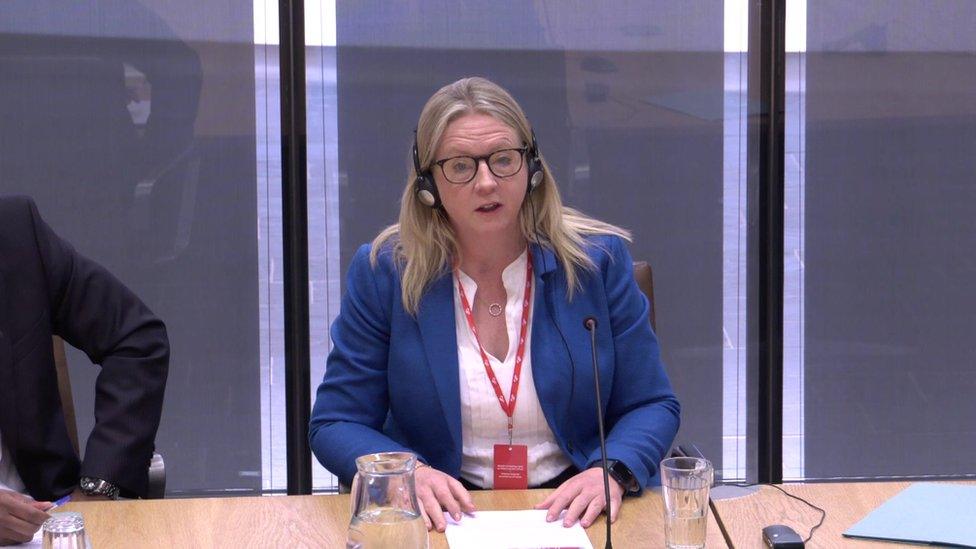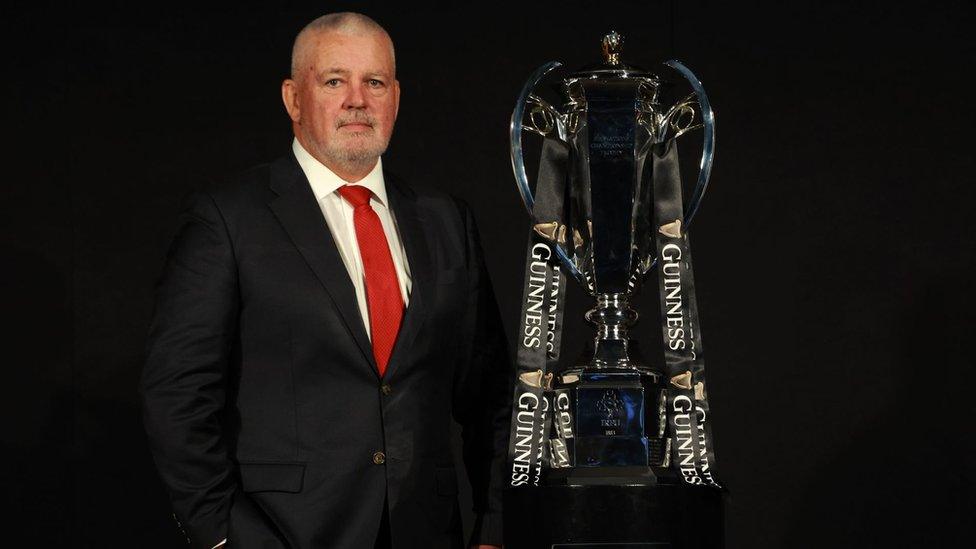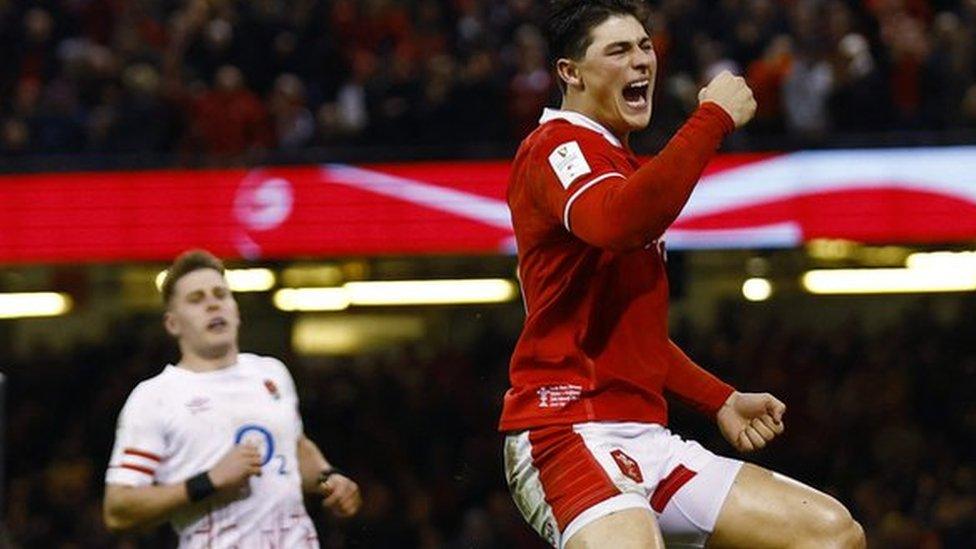WRU would 'struggle to survive' Six Nations pay TV ban
- Published

Six Nations games such as Wales v Ireland are protected for live free to air coverage on TV
The Welsh Rugby Union has warned it would "struggle to survive" if Six Nations live matches joined a list of protected free-to-air TV events.
WRU bosses said bids for TV rights would be lower without the possibility of games going behind a paywall.
The warning came a day after all Senedd parties asked for Wales matches in the tournament to be protected.
UK ministers recently rejected such calls, prompted by fears TV coverage could become subscription.
The current Six Nations deal between BBC and ITV ends next year.
Last year a Conservative minister said that if the Senedd could make a strong case for free-to-air protection, then the matter was not necessarily closed.
The so-called "crown jewels" list of sporting events requires live coverage of the Rugby World Cup final, the football World Cups, the Olympic Games and Wimbledon finals be offered to free-to-air TV channels such as the BBC, ITV or Channel 4 on "fair and reasonable terms".
WRU chief executive Abi Tierney appeared before the Welsh Parliament's Culture and Sport Committee on Thursday, after telling its members in a letter that moving the Six Nations to the protected list could have a devastating impact on rugby in Wales.
Explaining her stark warning to Senedd members, she said that out of the WRU's total revenue of around £90m a year, some £20m came from media rights.
That is "not a small amount of our revenue", she said, and with less of it "we would struggle to survive - so that's why it's devastating".

Abi Tierney became the WRU's first female chief executive last month
Director of Rugby Nigel Walker said the WRU was not arguing the case for putting the Six Nations behind a paywall.
Decisions on media rights were a "balance" between the higher revenue that might be earned from pay TV firms, he said, and the lower "reach", in terms of the smaller audience for games that would result.
But he added "If you take that off the table, you take the tension and competition at the market".
"That would make it really difficult, because then the free to air broadcasters would know that they could pitch at a level which we would be forced to take without the competition," he said.

SLAMMED : How the 1980s rocked Welsh rugby
BEING LOUIS REES-ZAMMIT: Unfiltered access to the man himself

Related topics
- Published31 January 2024

- Published23 January 2024

- Published27 October 2023
